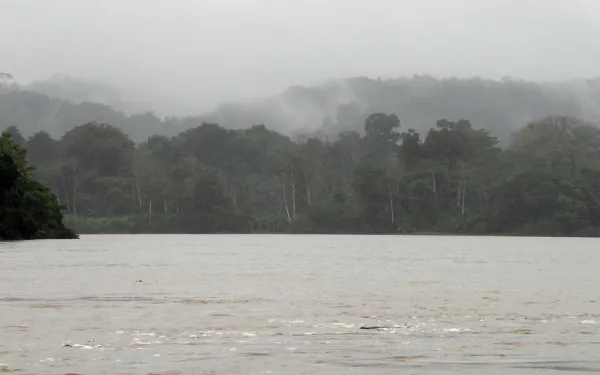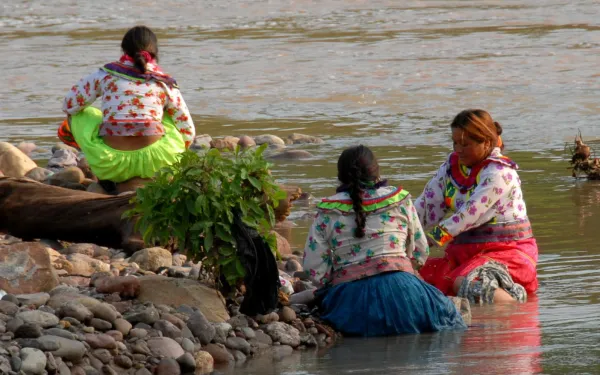Public Hearing on the Angostura Mine Suspended: AIDA Publishes Brief Urging the Colombian Government to Protect the Páramos (Spanish Text Only)
PARA PUBLICACION INMEDIATA CONTACTO: Natalia Jiménez, [email protected] Teléfono: (+57) 310-5734176 Suspendida audiencia pública del proyecto minero Angostura: AIDA publica su intervención en la que insta al Gobierno colombiano a proteger los páramos. Marzo 8 de 2011, Bogotá, Colombia – La audiencia pública programada para el viernes 4 de marzo en la ciudad de Bucaramanga (Departamento de Santander, Colombia) por el Ministerio de Ambiente, Vivienda y Desarrollo Territorial en el proceso de licenciamiento ambiental del proyecto de gran minería de oro a cielo abierto "Angostura" fue suspendida debido a situaciones que impidieron el normal desarrollo de la misma. Por esta razón, la Asociación Interamericana para la Defensa del Ambiente, AIDA hará llegar al gobierno colombiano su escrito de intervención sobre las obligaciones internacionales y constitucionales del Estado colombiano de proteger los páramos, que no pudo presentar en la suspendida audiencia. En los próximos días, el Ministerio de Ambiente, Vivienda y Desarrollo Territorial colombiano deberá pronunciarse sobre la cancelación total de la audiencia o sobre la posibilidad de reanudarla. Estaremos atentos a dicha notificación y nos aseguraremos de que los argumentos aportados por AIDA sean conocidos abiertamente y considerados dentro del proceso de solicitud de la Licencia Ambiental al proyecto Angostura. La misión de AIDA es fortalecer la capacidad de las personas para garantizar su derecho individual y colectivo a un ambiente sano por medio del desarrollo, aplicación y cumplimiento efectivo de la legislación nacional e internacional. La protección de agua dulce es una de nuestras líneas mediante la cual buscamos proteger el derecho al agua y asegurar recursos de agua dulce adecuados para las comunidades y los ecosistemas en las Américas AIDA, 426 17th Street, Oakland, CA 94612 T. (510) 550-6753, F. (510) 550-6740 AIDA Atlixco 138, Col. Condesa, México, DF, 06140, T/F (5255) 52120141 AIDA Diagonal 40 A No 14 – 75, Tel. (57 1) 3381277, Bogotá - Colombia AIDA Costa Rica, San Pedro c/o Centro de Derecho Ambiental y de los Recursos Naturales (CEDARENA) T. (506) 22837080 E-mail: [email protected], Website: www.aida-americas.org
Read more


